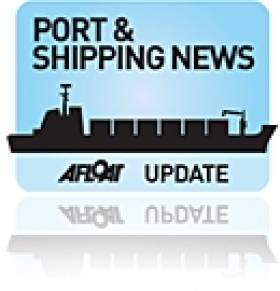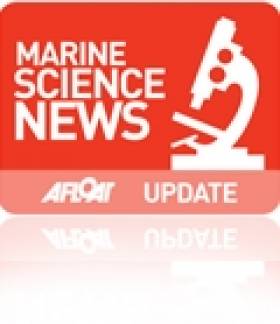Displaying items by tag: Irish Marine Sector
Arklow Shipping Expands Fleet into Handysize Bulker Market
#PORTS & SHIPPING – Arklow Shipping is further expanding its bulker fleet and moving into the market for larger vessels with an order for three ships in South Korea, according to Tradewinds.
The company which is headquartered in the Co. Wicklow port has booked two 35,000-dwt handysize-bulkers and a general cargoship at Daesun Shipbuilding. TradeWinds sources say Arklow is paying a premium for the ships against more competitive pricing from China.
Brokers price the Daesun bulkers at around $25.5m, which compares to similar deals in China at around $22m. As for the general cargoship, she will be delivered in the first half of 2013 and the bulkers in the second half of the year. Arklow previously signed up for a series of 14,000-dwt multipurpose (MPP) vessels at Mokpo, which later went into administration.
The orders were then passed on to Sekwang Shipbuilding only for it also to fall into financial difficulties. Daesun has had its problems too and was delisted from the Seoul Stock Exchange in April as it did not meet the bourse's financial requirements.
The latest order appears to have taken Arklow's owned fleet into the larger-handysize segment. So far it has focussed mainly on bulkers, general-cargo and MPP ships up to 14,000 dwt. It has a fleet of 55 ships including 12 newbuildings, most of which are registered in the Republic of Ireland. Arklow declines to comment on the Daesun order.
€6.4 billion EU Fund for Smart Growth and Jobs has Opportunities for Irish Marine Sector.
The European Union has opened its latest round of financial support for collaborative research and innovation announcing nearly €6.4 billion in new investment under its 7th Framework Research Programme (2007-2013) and there are opportunities relevant to the Irish marine sector.
This new call offers a range of competitive opportunities to support collaborative pan-European research across a number of sectors including health, food, ICT, energy environment, maritime transport, etc., as well as support for regional and specialist research infrastructures and support for SMEs.
According to the Commission Press Release, the package, the biggest ever, covers a vast range of scientific disciplines, public policy areas and commercial sectors. This funding will advance scientific boundaries, increase European competitiveness and help solve societal challenges such as climate change, energy and food security, health and an ageing population.
Around 16,000 participants from research organisations, universities and industry, including about 3,000 SMEs, will receive funding. Grants will be awarded through competitive calls for proposals and evaluations over the next 14 months. This package is an economic stimulus expected to create more than 165,000 jobs and a long-term investment in a smarter, sustainable and more inclusive Europe. It is also a key element within the EU's Europe 2020 Strategy and in particular the Innovation Union flagship initiative, which will be launched in autumn 2010.
A summary of opportunities relevant to the marine sector and direction to further sources of information is available in the attached FP7 Marine Information Note MarineSciencesFundingOpportunitiesinFP7July2010.pdf





























































